
 © Evangelia Karageorgos
© Evangelia Karageorgos


 © Evangelia Karageorgos
© Evangelia Karageorgos
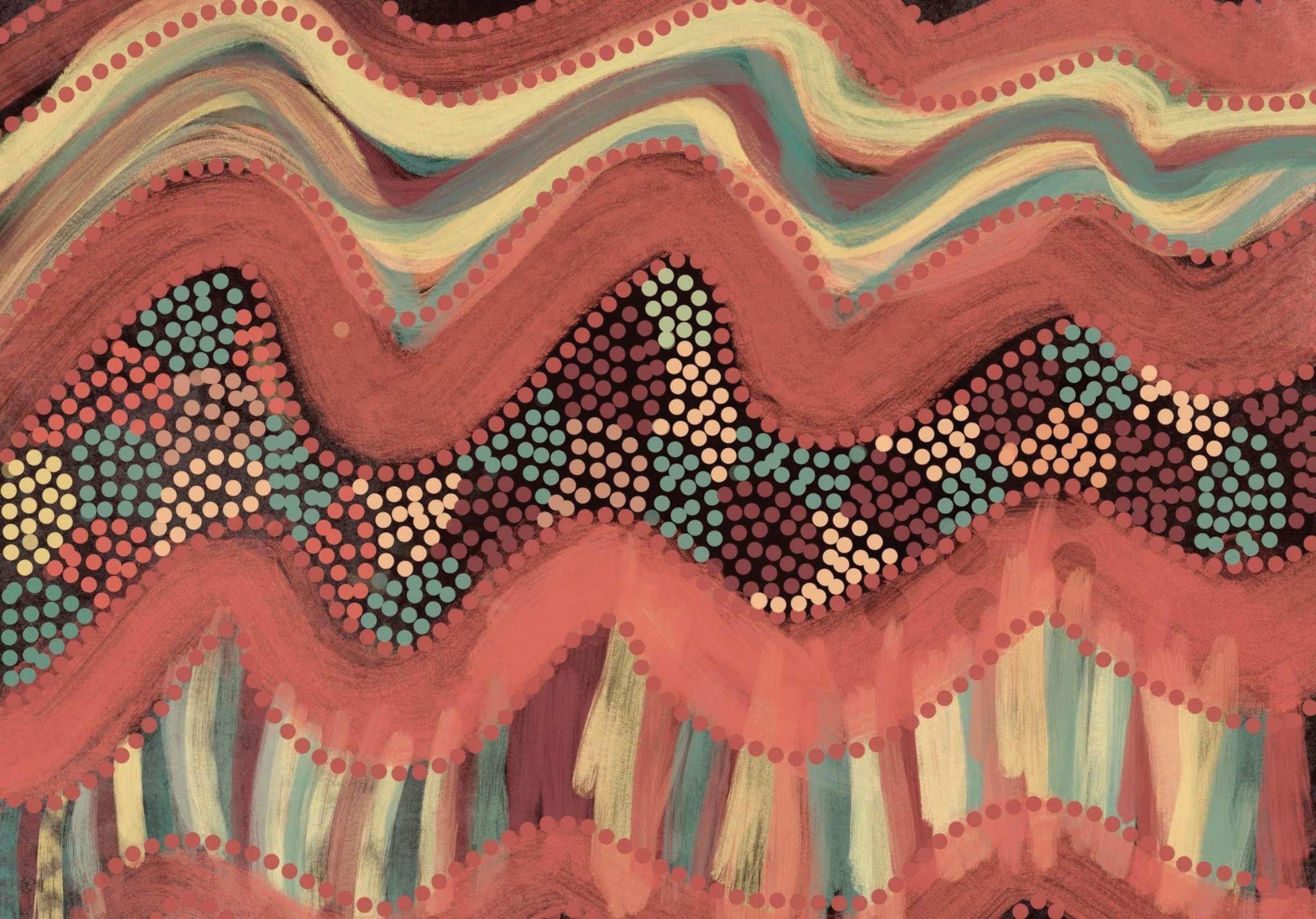
Nina Marni (translation: hello, how are you?).
Empire Times would like to acknowledge the traditional owners of the lands in which the editors, contributors and readers live, and honour elders past, present and emerging. Bedford Park is a significant site in the complex Dreaming of the Kaurna ancestor Tjilbruke. We write on behalf of the students and faculty on this land, First Nations, Non-Indigenous and Immigrant, who work and learn here. Empire Times is edited and distributed on the traditional lands of the Arrernte, Dagoman, First Nations of the South East, First Peoples of the River Murray and Mallee region, Jawoyn, Kaurna, Larrakia, Ngadjuri, Ngarrindjeri, Ramindjeri, Warumungu, Wardaman and Yolngu people. We acknowledge that sovereignty was never ceded, and that this land is stolen.
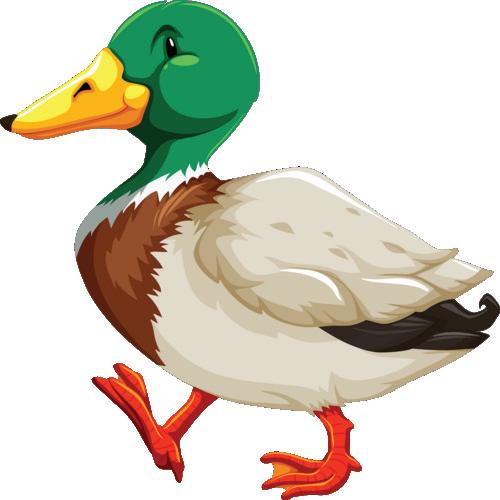
Hidden on one of the pages in this magazine you will find Flynn. Send a picture of Flynn in his hiding spot and your student ID number to empiretimes@flinders.com.au to claim your prize!
The winner will be announced when the next Empire Times issue is released.
(This image of Flynn above is not the one you need to find!)
Katia Rawlings
Rachelle Summers
Katie Stedman
Georgia Nolan
WRITERS
Blake Walden
Evangelia Karageorgos
Jemimah Mitchell
Margot Albrecht
Maxwell Willis
Oliver Land
LRC
Lockheart Tynan - Labor Club
Lachlan White - Unite
Maddie Tapley - Socialist Alternative
John Kelly - Young Greens
Graci Andrea - Young Liberals
Charlotte Balmforth
Jed Summers
Alysha Dinning
Harry Kellaway
Evangelia Karageorgos
Empire Times is a publication of the Flinders University Student Association (FUSA). It is your student magazine. The opinions expressed within are not necessarily those of the editors, Flinders University or FUSA. Reasonable care is taken to ensure articles are accurate at the time of publication.
We at Empire Times would just like to initially celebrate the successful completion of our half-way point for 2023! If you recall this year we have an aim to give you a total of 8 issues, and this is our 4th. Thank you so much if you’ve been following us throughout our last 3 issues, and thank you if this is your first time reading us this year. We hope you enjoy it!
So mentality. Defined as a habitual or characteristic mental attitude that determines how you will interpret and respond to situations. Synonyms include mindset and outlook. We’ve explored, and gathered contributions from people you have explored, this topic in all its entirety. From how we strategise in games and how to create a good team bond to how SA has a lack of places for people in need of help with their mentality on food and eating.
As you interact with this magazine, we ask you to think about your own mentality. Why do we think the way we do? What experiences in your life have shaped the way you think today? Do you question the reasons for your thought processes, or your reactions and action to situations where other people react differently?

Use this magazine as a time to stop thinking for a sec and enjoy a break, or use it as a time for a small reflection on yourself.
We once again thank everyone who contributed to this issue, we hope semester 1 has been kind to you all, and we hope you all are able to have a (very deserving) break. See you again next semester with issue 5!
Whether you’re interested in films, caving or board games, we’ve got something for everyone! Connect with like-minded people, develop your professional skills, build your resume or just have fun and make new friends.
We have a variety of clubs including:
• Community clubs such as the Queer Collective, Students with Disabilities Association and Mature Age Students Collective
• Academic clubs such as the Business Students’ Association, Psychology Students’ Association and Academic Science Club
• Cultural clubs such as the Hellenic Association, Indian Student Association and Indonesian Students Association
Special interest clubs such as the Performing Arts Society, Tabletop ‘Und Roleplaying Enthusiasts and Film Society
• Political and social justice clubs such as the Health and Human Rights Club, Sustainability and Environment Club and Socialist Alternative Club
So why wait? Join a club today and start making the most of your time at Flinders!





This is hypocritical, but you need to hear this. Doing the assignment mere hours before it is due is NOT a good idea. Just because it’s worked before, does NOT mean that it is going to work for you now. I know you fire signs like to think after you do something, but let’s just try to do some preparation this time. Let’s just aim to find some references before you have to change the date when you viewed it because you found it 2 hours before handing it in?
You beautiful crabs, guess what? It’s the month of the strawberry moon! Being cancer, you are often ruled by the moon, and you will be affected the most. Taking place on the 3rd and 4th of June, use the strawberry moon to embrace your wild side and live a little. Pat a black cat, break a mirror, open the chip packet from the bottom, or (and this may be the wildest suggestion) take a day off.
Taurus! This month your reputation of your prioritisation of both consistency and reliability precedes you! Unfortunately, so does your bullheadedness—uh, I mean stubbornness—sorry! You’re ‘incredible and unwavering dedication to your tasks’… that you linger on longer than necessary just to prove a point. Just saying. Maybe have a look at what you’re doing and decide if it’s really worth it or not.

Hello to you, you glorious beings! Now, June is a month for you to be a bit more thoughtful about what is being said. I know you fast walking, silvertongued, social chameleons can often smooth over everything when you put your foot in it—but let’s use this month of stress with semester 1 is coming to an end, to be mindful of what you are going to say before opening your mouth or sending a text.
Alright Leo, you are often celebrated for your bravery and strength—either physically, mentally, or emotionally. You try to be fearless optimists that refuse to accept failure. You can’t be this all the time. Let down those walls of yours for a bit, take some time to feel any and all of those negative emotions that you keep locked down—have a cry and give yourself a hug. You’re amazing! Remember to be kind to yourself.
Uh oh, it seems you haven’t been taking care of yourself. All that caffeine you counted as water, those late nights where you were focusing on being kind and supportive to those around you instead of focusing on yourself. This month I would like you to have a think about your future self and try to be kinder to them. Climb a tree, take a vitamin C, and for all that is good in this world drink a goddamned glass of water.





Heyyyy Libras. You guys are gonna get wild this June—all of you will going to a rave, no matter what age you are. Whatever ravegear you choose to wear—whether it’s super casual or a literal clown outfit—will attract your soul tribe to you! Remember—you attract what you put out to the universe, so don’t wear a bin bag or crocs (FYI—they’re still ugly).
There’s something quite ethereal about you Scorpios this month. A glow to your complexion, perhaps? I’d check your iron levels in case it’s medically-related. Still, you guys are ditching your usual gloomy attire for a more cottagecore look. I like it! You might find your friendship circle expands because of this change—get ready to meet people who aren’t goth (still love you, goths).
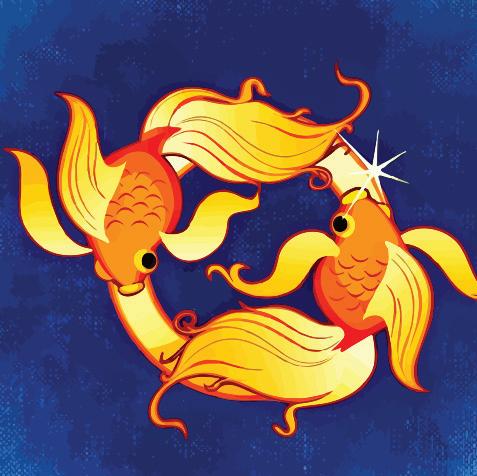
Dearest Saggitarians, you will meet someone of royal blood this June! Maybe it’ll be King Charles himself, or just some old Aussie bloke from Mitcham who thinks he is ‘The Rightful Heir’ to the British Monarchy. Buy yourself a plastic crown to remember this moment by. And then throw it out, because let’s face it, no one cares about the Monarchy anymore.
The tarot card representing Capricorn is The Devil—a card signifying addiction, obsession, and feeling chained to something. Well this month you’ll be chained to the rhythm! Just kidding. You’ll actually be coming face to face with your toxic habits—a humbling experience for anyone. It’s okay, you can admit it Capricorn—you’re a slave to ET’s horoscopes. The more you struggle with this truth, the harder it’ll be to swallow. Shushhh, it’s okay.
Aquarians will be getting in touch with Mother Nature in June. Maybe you Aquarians will go camping? Not something I’d pick, but you do you I suppose. Venturing into the great outdoors will help you determine who your real friends are…someone’s gonna get real honest when they realise there’s no hot, running water, and it ain’t you. Be prepared - bring a Swiss army knife and some popcorn, cause it’s about to get violent
Oh no! You’re creatively blocked! Unfortunately, no muse will come to your rescue to get you out of this slump! You’ve been criticised one too many times over your pasta art. Please stop crying. I’ve given up with you lot. Have some banana cake.
1. Should Flinders ban AI software like Chat GPT, and return to a more ‘pen and paper’ approach? Or do you agree with Flinders’ decision to allow Chat GPT under ‘strict conditions’?
2. Student loans are set to be indexed by 7% on June 1st, forecasted to rise by a whopping $1,700. The government claims indexing is ‘ordinary’ and due to wage increases. Do you agree with these statements?
1. The Young Greens at Flinders support Flinders students having access to AI. It is unclear at this point if AI is just a trend or something that will grow to be used commonly in our society. However, the reality of the matter it is something students are using. Therefore, it makes sense for the University allow AI so that they can regulate its use.
The existence of students using AI will not mean that plagiarism or violating academic integrity will all of a sudden be allowed. Students will still have to read, research, write their own work, allowing AI will not change that. We also recognise that many industries are considering ways the integrate AI into work and it would benefit students planning to go into the those industries to familiarise themselves with AI.
2. First of all, education should be free, from kindergarten through to university through to getting a forklift license. Our society benefits when people are free to obtain the knowledge they need to live their life. Universities too work best when they can focus on education and research, instead of profits and demands of “the market”.
In terms of the current scheme, the Labor government is correct that current policy is for HELP debt to increase with inflation, but that does not mean that the current policy is either good or unchangeable. In a world where inflation is massively outstripping wage growth, most of these loans are seeing a massive rise. The Labor government could decide to prevent the raise to HELP, or better yet forgive student debt entirely, but they are instead making the choice to prioritise tax cuts for billionaires, and nuclear submarines over ordinary people.
1. Flinders is a degree factory. You go in, you eat up lectures and you spit out essays. In this sense, we could all be replaced by Chat GPT and the gears of the university would still slowly turn, nobody aware that anything was amiss. And the teachers could use chat GPT to grade us, of course, and we could all take the year off. But if this happened, then the university administrators would have to admit that Flinders isn’t really about higher learning, where students engage in ideas and debate and open their minds to the world around them. They’re running a business, where you pay thousands of dollars to be there and they reshuffle courses based on what’s profitable and efficient. We should be learning in a way that it wouldn’t even matter how much we are allowed to use chat GPT.
2. While wages have seemed to have a large enough increase in terms of dollar amounts, real wages (factoring in inflation) has barely grown at all - 0.3% a year for the past five years. Last year, real wages fell by 4.5%. Everything is less affordable. Food, bills, rent. These things become more expensive, whether thats due to inflation pushing up the price of milk and carrots at Coles or the predatory housing market increasing your rent.
It is clear that instead of addressing the cost of living crisis, the Labor government is more interested in scrounging around, trying to find money to pay for their aggressive war with China and funnel $368b to nuclear submarines. They intend to make students, workers and the poor pay, and ramping up student debt is key to this. Industries and businesses want a skilled workforce to exploit, many of whom don’t even pay tax. Why should we pay when they profit? Instead, Labor is making us pay, refusing to freeze HECS indexation and refusing to raise job seeker rates. Education should be free and funded by the taxes of those who benefit the most from keeping our wages down.
1. In respect to academic integrity, Chat GPT and other AI programs should be restricted, to ensure that others’ work is not plagiarised through this process. Understandably students are drawn to using these programs to quickly produce work, where pressures on students continue to rise, leaving us with little time to adequately produce the work we need to. While this is understandable, not only do these programs plagiarise

other’s work but they also benefit only the student using them, leaving other students who do honestly produce work to have to put in much more effort than ones using Ai programs.
We believe it would be a complete misunderstanding of the problem to believe that returning to ‘pen and paper’ would be in any way fixing the issue. Flinders’s decision to allow Chat GPT under ‘strict conditions’ will most likely change as technology progresses, however, we believe greater implementing support for students to be able to produce honest work without forcing them to take time from vital daily activities would be much more beneficial.
2. Indexing has been an ordinary part of the HECS-HELP system; however, wages are not keeping up with the amount of debt students are accumulating. Many students are struggling to survive due to the current cost of living crisis, rental crisis and other factors which cause students to struggle to maintain a good balance in their lives.

Most students are forced to work low-paid jobs in retail and fast food, two industries that have not seen meaningful pay rises for a very long time. Once students graduate, they are then tasked with finding a job that will earn them enough to be able to pay off their debt, a prospect that is almost impossible due to the lack of middle to high-paying jobs available.
While wages may have risen these rises are not meaningful to those working in lowpaying roles, hence, the huge increase in indexation on student loans does not allow students to go on from university and live the life that the older generations expect due to their experiences in their youth.
1. No, especially to the return to a more “pen and paper” approach - for the reason that each student has a different approach for their needs. Some prefer writing on digital while others prefer the “pen and paper” approach. We don’t want more unfair study accessibility for students, we want less.
Chat GPT isn’t like Skynet from Terminator. Chat GPT may be cheating, however it only knows what we do and it has already been proved to blurt out incorrect information or even worse can believe that incorrect information is correct. There are already measures (e.g. Turnitin) to circumvent the use in assessments but we need to learn and the only way we can do that is by having it.
2. I don’t know where the government is stating this, however if they are claiming that wages have a significant impact on inflation, they are incorrect, as corporate greed is the major contributor to inflation. The government needs to eliminate indexation for HECS-HELP; Education is an investment in the future of our nation, not a means for profit. Ultimately, the Government needs to focus on reducing the cost of living pressures that students face since students shouldn’t study with the worry of the financial burdens especially full-time students with no to little income.
1. The ChatGPT guidelines Flinders has released reflect a general move toward people becoming comfortable with using the software in everyday life as a tool. Some of the purposes laid out in that include understanding complex terms and concepts (which increases accessibility) and generating things such as quiz cards. These purposes are tools. The University is obviously not encouraging students to write ‘write a 1500 word essay on federalism’ ‘write a 2500 word essay on why the Flinders Liberal Club is a fun club to join’ for classroom purposes (although maybe we can use it to improve our social media game hahaha).
Beyond this, TurnItIn has already started identifying ChatGPT so it is unlikely that it will be useful for writing whole assignments anyway. At the end of the day, this sort of AI software is here to stay and learning to use it is an important skill. Link from University for further reading: https://students.flinders.edu.au/content/dam/student/slss/academic-writing/ using-chatgpt.pdf
2. The current government is inactive and politically flacid in regards to the cost of living crisis generally. It is incredibly disappointing but unsurprising that at both a state and federal level, very little is being done to combat inflation and the cost of living crisis. If the government is complacent in allowing HECS to skyrocket, then they should at least consider lifting the current HECS caps so their economic inadequacy does not prevent current students from completing their studies. This issue is not in isolation for this government, who will soon throw us further into an inflated, cost of living hellscape by not renewing tax breaks that were keeping many every day Australians heads above water.
If the Labour Party really cares about people, then they need to do something in the next budget to ensure ALL Australians are given the tools to live comfortably, not be on the brink of homelessness and have some hope of one day being able to finish their degree/s, owning their own house, and not being stuck on a dependency cycle on the welfare system.
I think, when it comes to tabletop games, nothing is quite so integral to having fun and enjoying the game then the players mentality. While the rules are important, and the extra pieces and maps all well and good to have, it’s the mood and approach to the game that will decide whether you’re going to be a group of friends going on an epic quest to defeat the dragon terrorising the land, or just a group of halves interested people sat around a table throwing dice at each other.
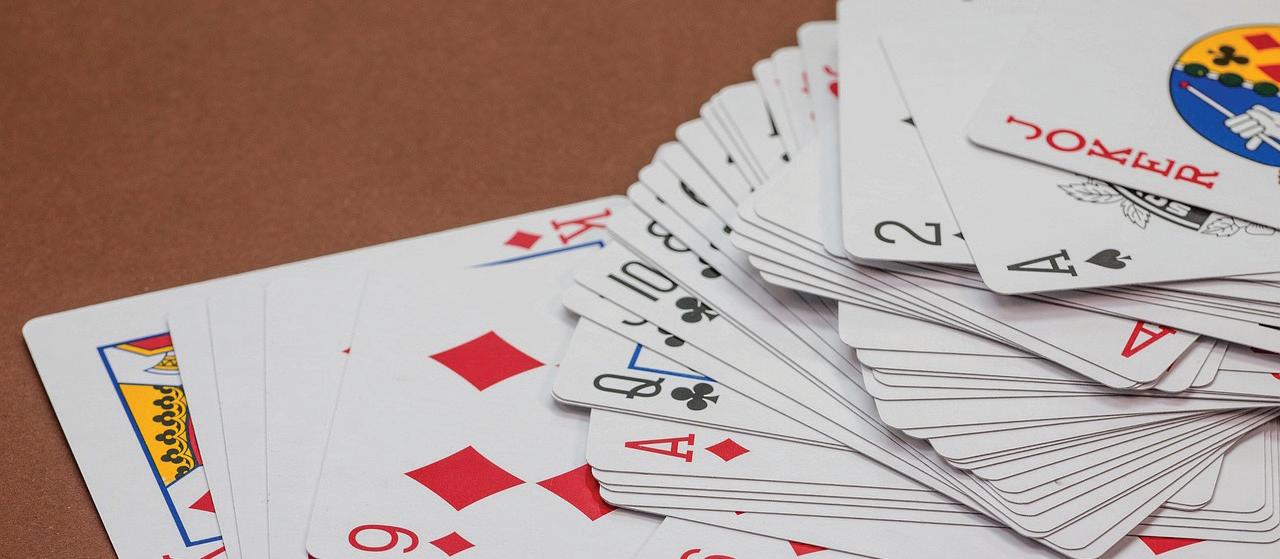
I am blessed with the fact that I play D&D most consistently with a group of friends I have had since high school. These people are truly invaluable to me, and part of that is the amazing mentality they bring to each session. A good part of that, however, is the understanding both the players have, and I have about the way the sessions going to run. Our group likes to get side-tracked, laughing about unrelated things, making up jokes, talking about movies we’ve seen. Our group also likes to get side-tracked in the game, coming up with silly answers to puzzles, spending ages checking finances and debating with apparently random citizens. This is all fine, and I enjoy this as well, so it all works for us. That is what is important about mentality for D&D players. This situation might
sound like a nightmare for you readers, and that’s okay, m not everything is going to work for everyone, and there’s always other groups out there that do it the way you want, either online or in a store somewhere. There’s a saying the community that ill pass on to you guys now, “No D&D is better then bad D&D.”. It’s better to wait and find some people that suit you, then it is to force yourself to join a group where you don’t gel.
That leads me to the next point I’d like to make about D&D, and the one I’ll conclude on. D&D has done amazing things for my mental health, and others in my group. I know people who say to me that without D&D at the end of the week, they wouldn’t know what they would be looking forward to. It drags people like me out of my bed on a weekend and forces me talk to friends. I have this terrible habit where is just will not talk to people by accident for weeks if I don’t have to, and there are many friends I have now that I easily could’ve fallen out of touch with if it weren’t for our D&D sessions. It provides people with a way to escape day to day life and catch up with friends. I think this is possible because it’s approached with enthusiasm and the understanding that everyone there is human, we’re all having fun, and at the end of the day it’s all about the adventure.

Lord, this path feels hard to walk Please keep me strong, I pray. Can I sit down with you, talk About why I’m here today?
You’re the engine that drives me, You placed people as the gears. Your Sovereign power, enable Their support throughout the years.
But now one cog is missingA void that makes it harder. How can I keep going? Can I just skip to the after?
The hill is getting steeper, Lord, And now I’m down a player. Please stay as my stronghold, Keep up You’re roaring fire.
Help me soar on wings like Eagles, Lift my feet to tread on heightsLord, if this really is your will, Then send strength to flood my nights.



Naoki was seated at a booth by the window. Polished glass ran from the ceiling to the floor, dotted with glistening beads of rain. He watched office workers march by, uniform in their black suits and bowed posture. If the glass wasn’t there, they’d be close enough to reach out and grab him. He’d booked the day off work to see Nami before she left to visit her sister for a week but hadn’t managed to get out of bed until noon. With his eyes shut and the quilt pulled up to his cheeks, he wouldn’t have to face the decision as to his life’s purpose.
Today was typical, in that Naoki felt faintly nauseous. Occasionally, a numbness that ran from his shoulders to his fingertips provided a distraction. When he had the energy, he would clench his fists a few times, trying to restore feeling. Staring blankly into space, he wondered how he ought to spend his life. Since he began working full-time, his mentality had changed. It had crumbled away, like a house made of sand.
The door swung open, and a woman entered, wearing a tan coat and black hair neatly fastened with a clip. Her high heels made a knocking sound as she walked towards him. She placed her coat and handbag in the basket under the table, took a seat facing Naoki, and reached across the table for his hand.
“So, how are you, darling?” Nami’s large smile made her eyes resemble crescent moons.
“I’m alright. It’s nice to meet you during the day like this,” Naoki smiled, concealing fear for the moment.
“It’s definitely something we should make a habit of.”
A young woman appeared, clutching a pen and notepad. “Good afternoon. Can I get you something to drink?”
“Oh, I’ll have an americano, please,” Nami replied.
“And I’ll have a cup of sencha,” Naoki added.


“A sencha and an americano,” the waitress confirmed before leaving.
After their drinks arrived, Naoki lifted the teacup to his mouth and took a sip. “Whether someone
drinks tea or coffee, both drinks are bitter,” he remarked.
Nami giggled. “I’d never noticed that, but I suppose you’re right.”
He peered inside the teacup, examining the clear green liquid, and envied it. He wished life was as simple as a cup of sencha—unchanging in colour, texture and taste, and its existence confined to the walls of the cup.
“Nami, there’s something I need to talk to you about.” He lingered on the teacup, delaying eye contact for the moment.
Nami took a sip of coffee before returning her mug to the table. “Okay. What is it?” Her tone was light.


“I think I need to make a change.” Nami’s smile melted away like snow. Naoki feared she would pull her hand away, but she didn’t.
“Okay…what’s on your mind?” Her breath quickened.

“I feel like I’m missing something.” Nami’s eyes remained fixed on Naoki, waiting anxiously for him to deliver some kind of ultimatum. “I went to university, found a job at a big company, signed for an apartment, and yet I can’t help but feeling there has to be more to life.” Nami nodded, urging him to go on. “I go to work, I earn money, and one day I’ll get married and have children, but for what purpose?”
“A normal life has always been enough for me, but if it isn’t enough for you anymore...” Nami hesitated, “then I suppose you have to make a change.”
Naoki held Nami’s hand firmly. “I love you, but I don’t know what will happen if I go on with my life the way it is.”
Nami took a deep breath. “Okay. Well, what are you going to do?”
“I think I need to leave Tokyo for a while, to figure out what I’m missing. I’ll look for a job in a different city, or in the countryside, and find a different focus.”
Nami nodded, her eyes beginning to fill with tears.
He leaned in towards her. “I’ll visit you in Tokyo as often as I can, and when I’ve figured things out, I’ll come back. This isn’t the end. I just feel I need to spend some time away.”
Nami saw a desperation in Naoki’s eyes that shook her. “There’s no relationship if you’re unhappy,” she replied. “Take the time you need.”
She glanced at her watch and wiped away tears across her face. “I need to head home and finish packing. Would you like to come with me?”
“If it’s okay with you, I’m going to stay here and think a bit longer. I’ll see you at your place in an hour or so?” Nami nodded and left a scent of perfume as she walked towards the door
Charlotte is a 17 year old SA based artist who suffers from multiple chronic illnesses. These have impacts on her mental and physical health which she expresses in her artwork. She has just won an art competition along with three others and that has awarded her an exhibit in the SALA (South Australian Living Artists) Festival. The exhibit will be at OYEH on beach road in Christies Beach between the 1st and 31st of August 1pm -5:30pm or by appointment.
What is your favourite part of creating art?
The end is my favourite part, seeing a piece come together. People can look at it and everyone can see it in a different way and that’s really special.
What are your goals for your artwork?
I would like to be able to sell them eventually because it’s a way that I will actually be able to make some money for myself. Whether that be on canvases, T-shirts, mugs or other collectables. I would like to be able to paint something on a bigger scale that could draw some more attention to my work. I am about to have an exhibition in the SALA festival which will be a great achievement of mine which will hopefully help my future work.
What do you want this exhibition to lead to?
I guess my main goal is to have more people see my work. I think I would also like to show my audience and help them understand what it is like for people with chronic illnesses. I also want to help people with similar issues feel seen and understood, to know that they aren’t alone.
How do you feel your artwork connects to mental health?
Most of my paintings are created from when I have been in a negative headspace or in a health flare
for whatever reason. It’s a way of releasing the negativity in a healthy way rather than it manifesting in physical pain or muscle twitches. I’m not good at getting things out through words but there is no judgement through art in a way that there is through language.
What is the inspiration for some of your artworks?
I don’t really have much outside inspiration it just manifests from what I feel. My art expresses what I feel on the inside, so I guess my inspiration is my own pain.
How does creating art help your mental health?

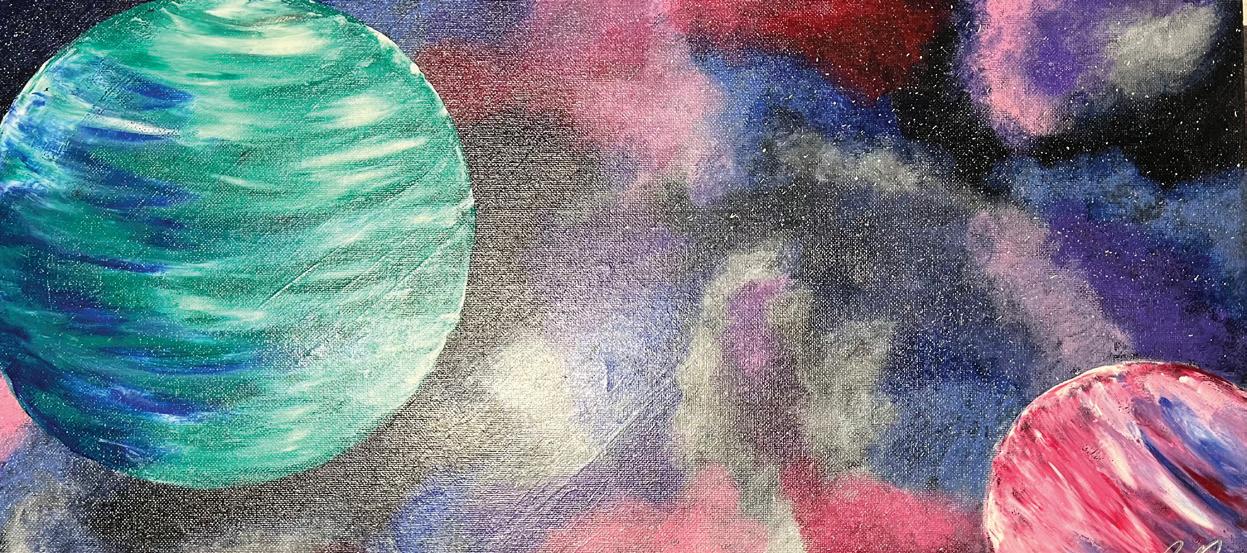
It helps me regulate my emotions and gives me a safe space to express them. Sometimes life is just crap and if you don’t have an outlet then it can really shake you. Painting has helped me cope in the midst of the destruction that is my life.
What are your challenges in creating art?
There are challenges from my body which may not allow me to create artwork. Sometimes my pain will prevent my and other times my brain won’t let me focus enough to spend the time creating. Paint is also expensive and as the main form of art I work with it can become very space limiting as well. I primarily paint on canvas and you have to find space to put them all once you are finished a project and we have run out of wall space.
Do you have any words for other people in a similar position to you?
I’m probably going to sound like a greeting card throughout this part. When you feel like you can’t speak, art can talk for you. It doesn’t have to be good for it to help you. Don’t let it rot inside, let it out! Keep going, even if you feel like you can’t.

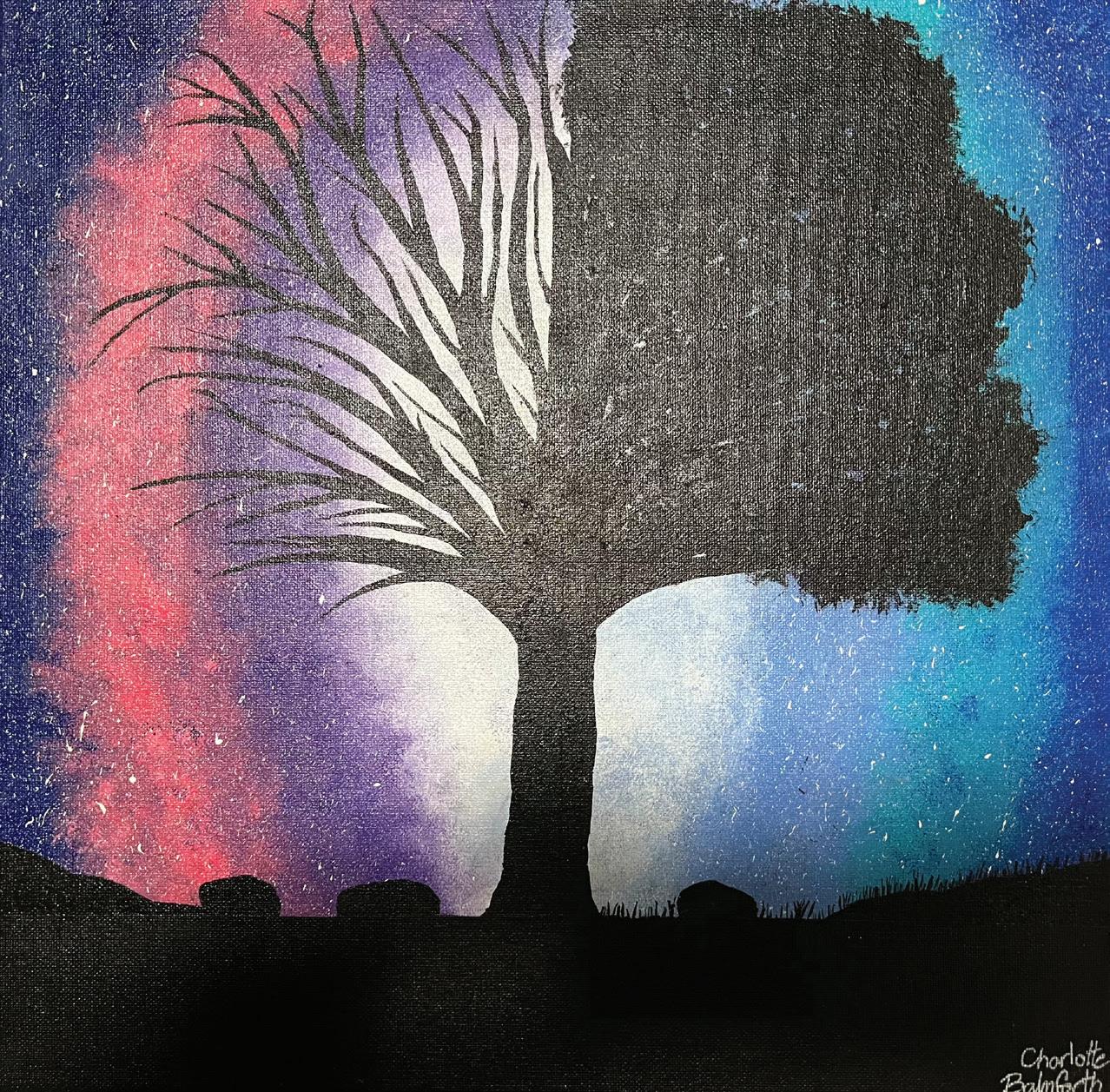


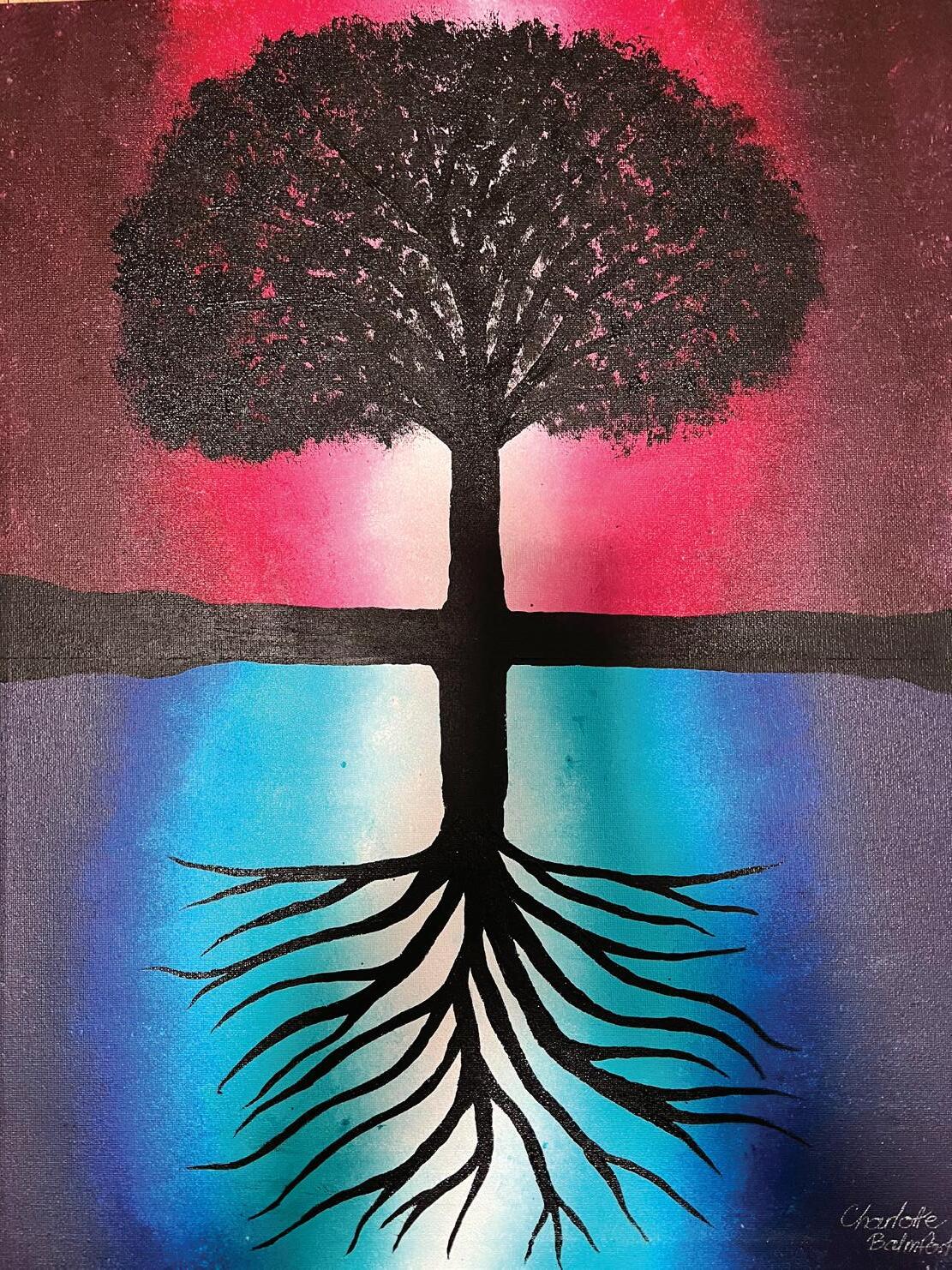
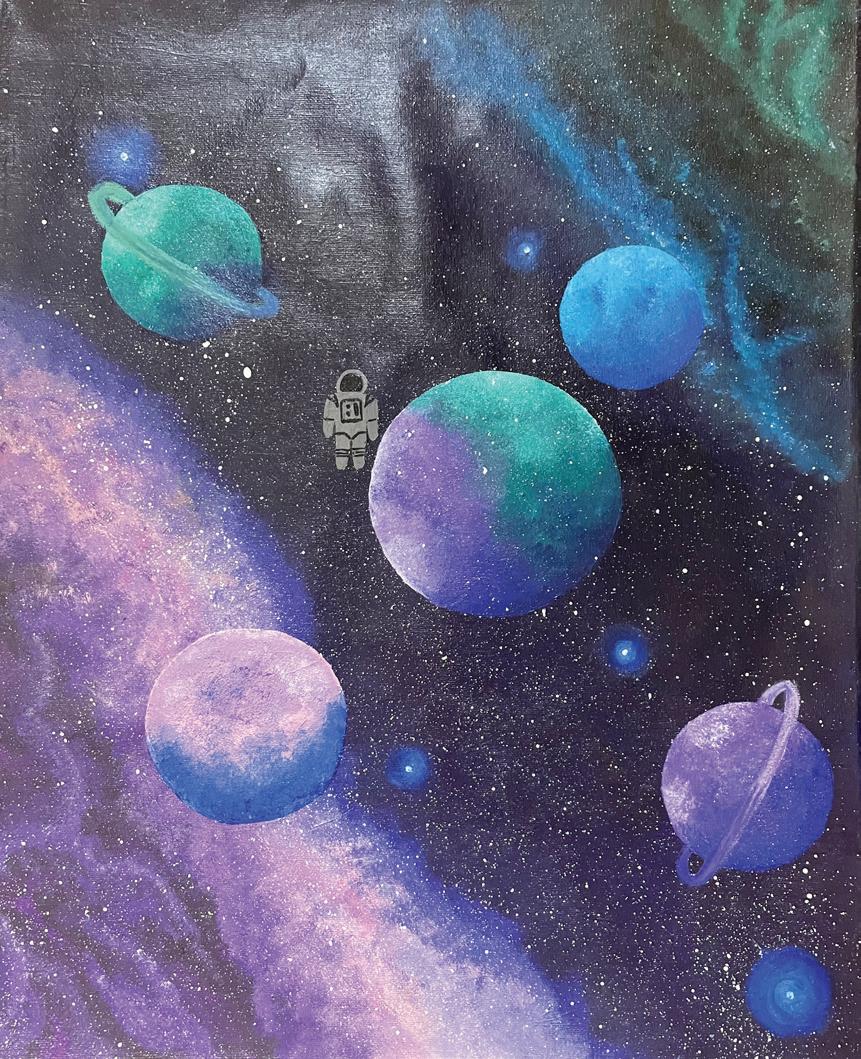
I think its safe to say that anyone who’s ever listened to music has experienced the effect that music can have on your emotions. I for one always listen to music whenever I’m upset, and especially heavy metal which I’ve always found therapeutic. It was this train of thought that lead me to remember all about music therapy, an interesting line of research that I had learnt about while in my psychology course. I thought that it would be interesting now to look at some of the research that’s been done into the effects of music on the brain.
In true university student fashion, I took straight to google scholar, and of course it turns out that there are several studies on the effects of music on depression. Castillo-Perez, S., et al. (2010) did a study comparing the effects of music therapy to standard psychotherapy when treating depression and discovered that the use of music in combination with therapy could be an avenue of treatment for mild cases that proves promising. Guetin, S. et al. (2009) performed research on treating depression and anxiety in patients with a traumatic brain injury and found that it resulted in a marked increase in mood. They conclude that music therapy could become the basis for management of those disorders in these cases.
It is worth noting however that while results are looking promising, this is a new area of research, and more study always needs to be done. Maratos. A. et al. (2008) performed a study where they looked at five previous studies and analysed the results. They conclude
that while the results do have short term improvements, more research needs to be performed to have a clearer understanding of the effects of music on depression. I believe that if there’s any promise at all in these areas of study it’s absolutely worth investigating, especially with how relaxed it is in comparison with some more intrusive therapies. If music therapy can be refined and utilised to treat trauma and depression in the modern age, then perhaps the ease of treatment would suit it to less severe cases and start more people who worry about mental health on the road to recovery. Perhaps it could even be refined to the point of being suitable for self-management, and home use.
Music, I find from personal experience, also creates an amazing sense of community, which is integral to wellbeing. As someone who is a part of the metal community, I’ve never found a more accepting ready to help group of people. I have something in love to talk about with other people, something that marks me as part of a group. I know other music genres have their own communities as well. More importantly, if you are just in love with music itself, there are people that love to talk about any kind of music. I work in a school and bonded with several new staff members over our tastes in music, (both similarities and differences). When it comes to mental health and mentalities, I think music can teach us to be very accepting of others, and it can teach us to be accepting of ourselves, especially as we connect with those other people.

Formula 1 is a sport that requires clarity and fortitude above all else. The ability to clear one’s mind of all non-essential information and construct the perfect lap in Qualifying and ‘flip the switch’ into race mode is fundamental to their success.
In this article we will explore the differing mentalities and qualities of 3 drivers, all of which are multiple F1 world Champions.
Sebastian Vettel
Sebastian Vettel is a 4x World Champion and retired from Formula 1 at the end of the ’22 season. Throughout his illustrious career he accrued 53 wins, the 3rd most by any driver in history, and 57 pole positions. This is a man who knows how to put a lap together. But how does he do it?
Those close to Vettel often regard him as a jovial spirit, a man who uplifts those around him and bolsters their spirits. The flipside of this is his extremely introspective criticism, identifying all of his own flaws acutely and taking full responsibility for his failures. He has spoken about this attitude many times – especially in his difficult years at the tail end of his time with Ferrari – often regarding his own failures with honest profundity.
In a 2021 interview with F1TV crew, F1 Team Boss Otmar Szafnauer regarded Vettel as having ‘a winning mentality’ that helped his co-driver Lance Stroll overcome some of his own shortcomings throughout the season and bolstered the team’s spirits throughout a difficult season for the team.
Max Verstappen
The current Driver’s champion off the back of the ’21 and ’22 seasons, Max Verstappen is known for his extremely bold driving style in wheel-to-wheel racing, pushing his rivals to the absolute limit and challenging them to a battle of wills in his racecraft. Though, little of this attitude is seen in his Qualifying performance.
When it comes to Quali, Max is a being of focus and discipline. Verstappen’s comments after any Quali session are regarding the car, his setup for the weekend and how they could have improved. His mentality is one of development, thinking
forward to the race and into the future. This mindset helps the team develop across a season, as the sport of Formula 1 is won or lost based on the technological innovations and developments the teams can deliver their drivers across the season.

When it comes to self-reflection, Max is a cool and level headed individual, no doubt tempered by his now 8 years in the sport, starting at a spritely 17! His ability to reserve his racer’s aggression for wheel-to-wheel fighting is one of his most impressive and essential qualities as a championship driver.
Arguably the greatest driver of all time with 103 wins and 7 world titles, Lewis Hamilton is a man of incredible consistency. His ability to put together a weekend begins with his attitude, always regarding his colleagues in high esteem and building rapport with the engineers and PR staff who usher him through the weekend’s press. This implacable spirit manifests itself in his humility, always acknowledging his shortcomings quickly and honestly, and always inclusive of those who contributed to his success along the way.
Lewis carries a special sort of fortitude that only he possesses. As the sole black driver in Formula 1, he has been subjected to all of the racism and obstacles that presents and overcome those prejudices with aplomb. In an interview for Black History Month with Naomi Schiff – a fellow black racing driver and Sky F1 pundit – the pair discuss the lack of acknowledgement they faced as well as their shared goal to inspire and uplift. Hamilton’s initiative, Mission 44, was set up to work with schools to accomplish that goal.
Through these 3 drivers we can observe a collection of traits that each share. Humility. Honesty. Focus. Determination. Ambition. Integrity. These are the qualities that make champions. To embody these attributes should be the goal of all people, especially their legions of fans.


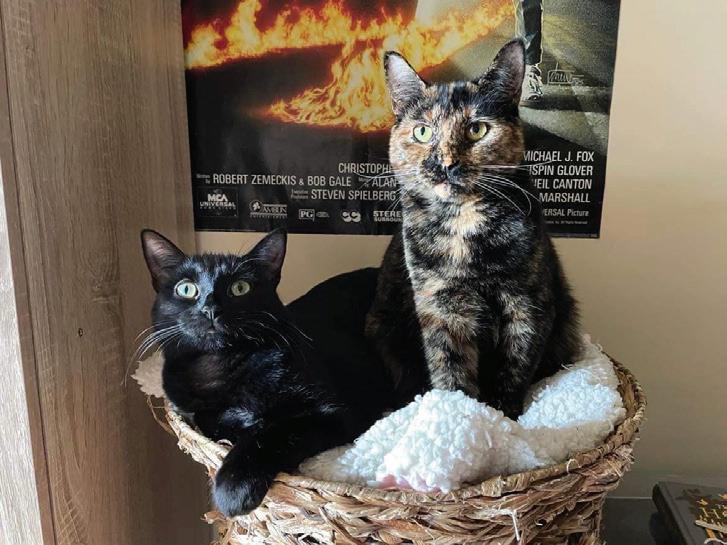
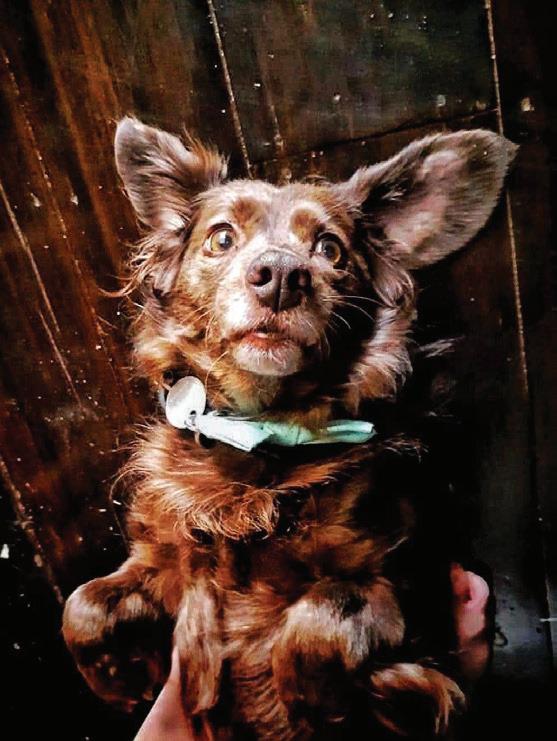








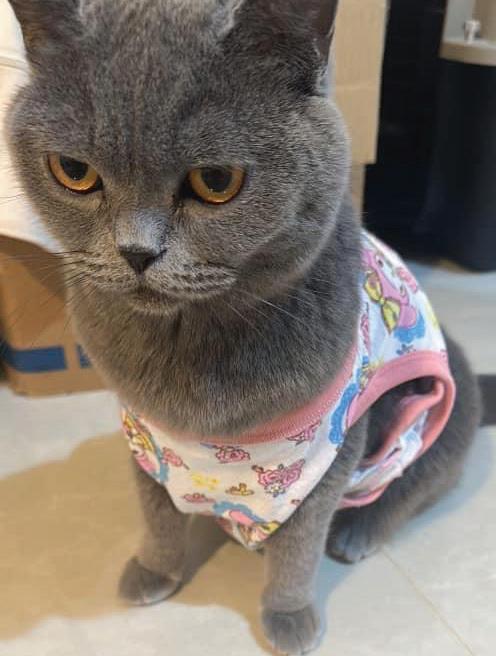

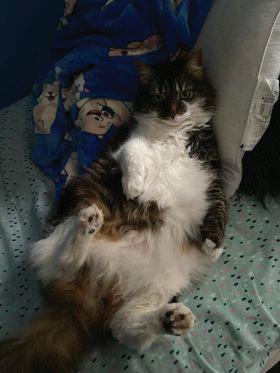
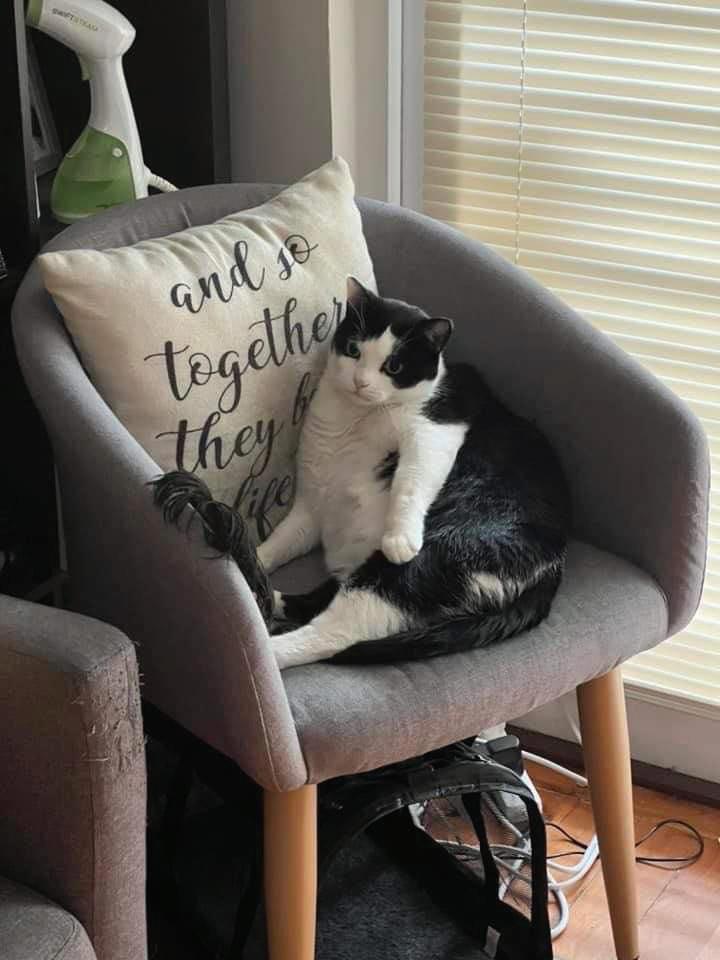


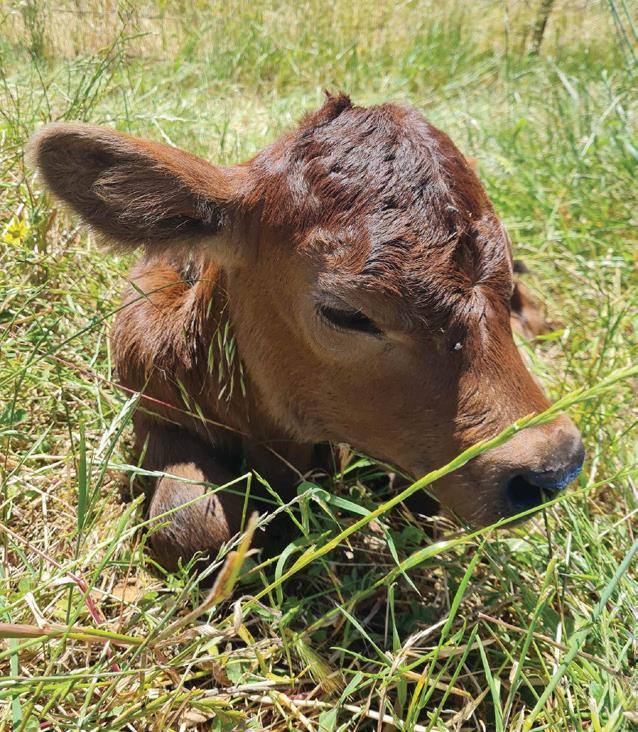


It’s been almost three years since the COVID-19 outbreak, and many could say that, as a country, we’ve returned to our normal lives. But the pandemic still affects many Australians to this day. While the financial burdens are being seen and felt by everybody, the continuing psychological burdens of COVID seem to go unnoticed.
‘We’ve seen such an increase in eating disorders, particularly over the COVID-19 pandemic,’ Dr Gemma Sharp claims. Sharp is a Senior Clinical Psychologist from Monash University. She revealed in an ABC News segment earlier this year that 1 in 5 kids are experiencing eating disorders - that being, approximately 1 in 3 girls and 1 in 5 boys. These statistics barely touch the surface, with many cases going unreported - in particular, male eating disorders, which may present more as a desire to achieve the ‘ideal’ physique, and look ‘lean and muscular’ (‘Men, boys, and eating disorders’, n.d.).
Four Corners’ documentary ‘Fading Away’ (2023) further explores eating disorders postCOVID. It features 23-year-old Sara Ahearn, who has suffered from severe anorexia for over 10 years. She had a brief period of recovery a few years ago in which she studied psychology and nursing. That was, until COVID broke out. Abrupt changes and restrictions in environment and routine caused Sara, like many others, to relapse. Now, three years on, Sara is practically begging for effective medical assistance.

Sara’s mother fears for her daughter’s life, claiming her eating disorder is ‘at its worst’.
A 2021 study from the Journal of Eating Disorders investigates the impact of COVID-19 on adolescents. Of the 48 patients interviewed, 40% cited the pandemic as a precipitating factor to their eating disorder. Reasons for their distress ranged from not being able to play competitive sports, worrying about their grades after classes shifted online, and boredom and loneliness from being in lockdown. The same 40% were reported to have suffered a steeper decline in health, and showed more presentations of ‘medical instability’ and lower BMIs on average. This explains the greater demand for inpatient admission during the height of the pandemic. COVID posed a ‘disruption in normative developmental processes’ for many young people; many suffered a major loss in social interactions and structure, turning to social media for comfort.
22-year-old student Sophie suffered anorexia 6 years ago. After hospitalisation and regular monitoring, she made a full recovery in 1 year. I asked her to reflect on adolescents experiencing what she experienced and living with the pandemic. She commented:
‘Some eating disorders, including mine, are caused by a stressful, rapid change in environment. It was unsurprising to me that cases surged when COVID broke out and lockdowns were enforced. To cope with fear of the future, social restrictions and limits on physical activity, people self-harmed through food.’
Furthermore, Sophie commented on current eating disorder awareness, particularly regarding younger people:
‘While I think eating disorder awareness has definitely improved over recent years, there is going to be an inevitable increase
in cases as more children are being exposed to social media.’
Many can agree that social media is a negative influence on young people’s body image, especially on social media platforms such as TikTok.
Aussie YouTuber Katlyn Stewart (aka ‘Drama Kween’) claims she’s been ‘seeing a lot of new things about weight and body image issues [...] on TikTok’.
‘There are people who are now posting “thinspo” images where [...] they’re taking a photo of somebody who is a certain weight and [...] saying “this makes me not want to eat”, and I think that is very triggering to, you know, obviously a lot of people.’
On a positive note, echoing Sophie’s observation, eating disorder awareness does seem to be increasing.
In fact, Flinders University has partnered with the Statewide Eating Disorder Service (SEDS) to build a new $7.1 million centre at the refurbished Repat in Daw Park (‘New home for eating disorder services’, 2019).
The new SEDS building will hopefully provide effective and evidence-based treatment and also function as a research facility. I asked leading researcher of the project, Matthew Flinders Distinguished Professor of Psychology Tracey Wade when the building would be complete.
‘We hope to have the build finished by end of 2024,’ Professor Wade informs. ‘It has been a partnership between the Federal and State government and Breakthrough Mental Health Foundation, liaising with services and people with lived experience and me.’
This new development certainly won’t undo the damage COVID has done, but it is a cause for hope.
VEPVDPAEPXUSEFFRKDAG
YTRRMRKAOCJYZMRIFDNM
JSGGMDNJBCXSLTDTKOCL
XVILWERRSAQCXFDEGHXL
JAKICEALPNOPKHSGACWS
EAANMSMNIQWHEMCFDQIF
VEPVDPAEPXUSEFFRKDAG
UNKHISEITODOASQVVVES
YTRRMRKAOCJYZMRIFDNM
SBTWNINNIEMLTAYXUTTT
XVILWERRSAQCXFDEGHXL
JUXTDOTGVSEOIDMJEGYR
EAANMSMNIQWHEMCFDQIF
BHSAFNAAIGJGNNLIPNNE
UNKHISEITODOASQVVVES
RBEZUHLUTPMYGEVKKTFS
QRCALRITYYJKDSTNHESS
OABJLRTIXZXUISNKOEID
JSGGMDNJBCXSLTDTKOCL
VIQTNTYSELFESTEEMMYD
JAKICEALPNOPKHSGACWS
NNGSEIHMHPTCOCFMZOMK
VEPVDPAEPXUSEFFRKDAG
FWTPSPTYIHTRRLRJJTOH
YTRRMRKAOCJYZMRIFDNM
CATFSFQIPPYYDJCSYIFA
XVILWERRSAQCXFDEGHXL
BRPRESSUREZOEYGHHOMP
EAANMSMNIQWHEMCFDQIF
YPGSMMJNWFEFRKOEBNDP
UNKHISEITODOASQVVVES
ETDXTXTVLAROEXOQASTY
SBTWNINNIEMLTAYXUTTT
JUXTDOTGVSEOIDMJEGYR
BHSAFNAAIGJGNNLIPNNE
EatingDisorderMindfullnessPositivityOCD
JSGGMDNJBCXSLTDTKOCL
RBEZUHLUTPMYGEVKKTFS
JAKICEALPNOPKHSGACWS
QRCALRITYYJKDSTNHESS
SelfEsteemPsychologyMentalityBPD

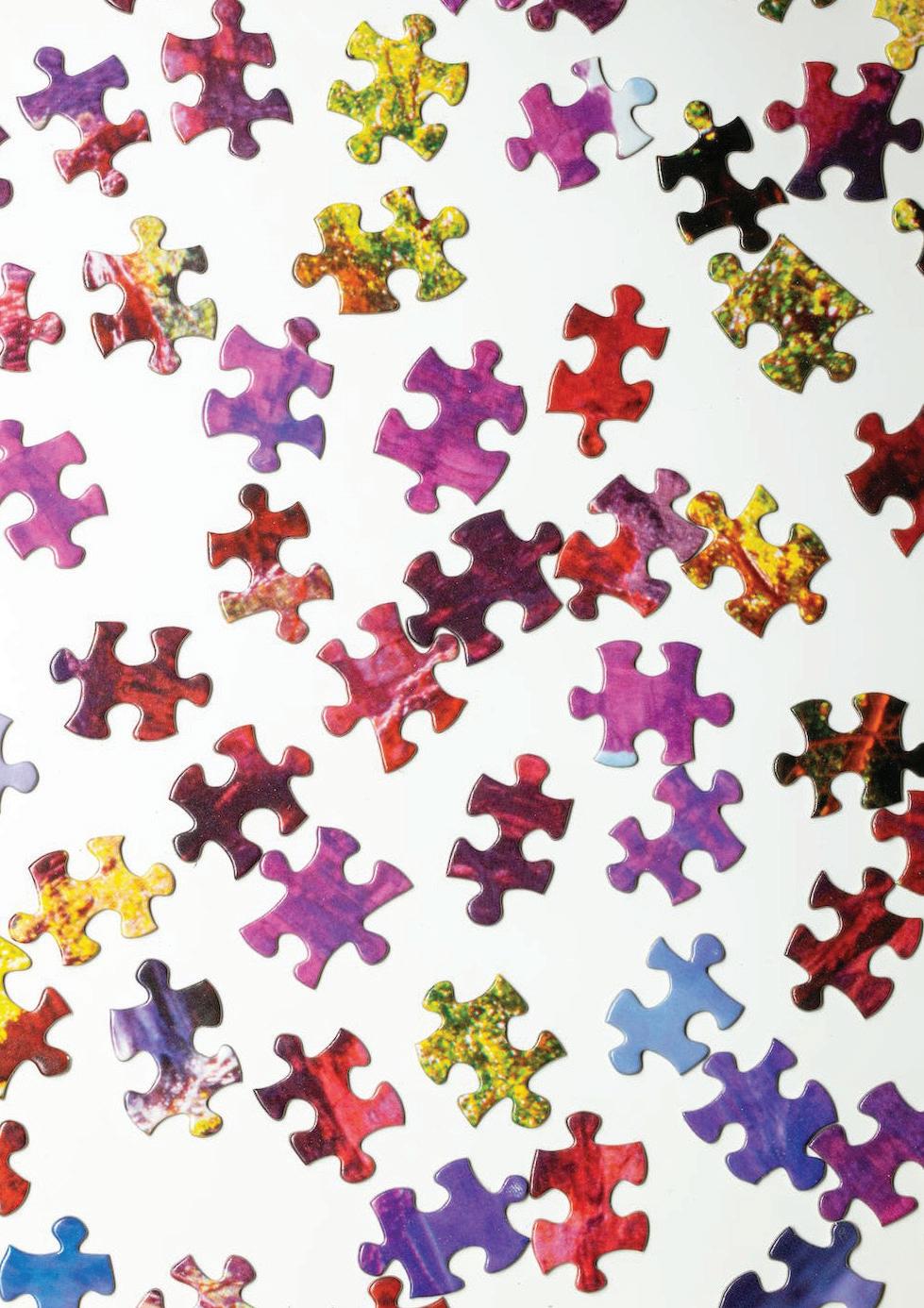
PressureEmotionsSadness
DepressionAnxietyAutism
StressGriefHealthy
VEPVDPAEPXUSEFFRKDAG
OABJLRTIXZXUISNKOEI
YTRRMRKAOCJYZMRIFDNM
VIQTNTYSELFESTEEMMYD
XVILWERRSAQCXFDEGHXL
NNGSEIHMHPTCOCFMZOMK
EAANMSMNIQWHEMCFDQIF
FWTPSPTYIHTRRLRJJTO
UNKHISEITODOASQVVVES
SBTWNINNIEMLTAYXUTTT
CATFSFQIPPYYDJCSYI
BRPRESSUREZOEYGHHOMP
JUXTDOTGVSEOIDMJEGYR
YPGSMMJNWFEFRKOEBNDP
BHSAFNAAIGJGNNLIPNNE
RBEZUHLUTPMYGEVKKTFS
ETDXTXTVLAROEXOQASTY
QRCALRITYYJKDSTNHESS
OABJLRTIXZXUISNKOEI
VIQTNTYSELFESTEEMMYD
EatingDisorderMindfullnessPositivity
NNGSEIHMHPTCOCFMZOMK
SelfEsteemPsychologyMentality
FWTPSPTYIHTRRLRJJTO
CATFSFQIPPYYDJCSYI
PressureEmotionsSadness
BRPRESSUREZOEYGHHOMP
DepressionAnxietyAutism
QRCALRITYYJKDSTNHESS
OABJLRTIXZXUISNKOEID
VIQTNTYSELFESTEEMMYD
NNGSEIHMHPTCOCFMZOMK
FWTPSPTYIHTRRLRJJTOH
CATFSFQIPPYYDJCSYIFA
BRPRESSUREZOEYGHHOMP
YPGSMMJNWFEFRKOEBNDP
ETDXTXTVLAROEXOQASTY
YPGSMMJNWFEFRKOEBNDP
ETDXTXTVLAROEXOQASTY
EatingDisorderMindfullnessPositivity
SelfEsteemPsychologyMentality
PressureEmotions
DepressionAnxiety
StressGrief
PTSDLearning
Brain
CAN YOU ESCAPE THE MAZE?

ITDSNME
HSOTGUTH
TUTEDTAI
RBANI
TIAEORNC
BHTIA
GEYOIODL
UIVROBAEH
OLECNREFTI
PRECIEXNEE
OYYOGHPSCL
CVEIJESBUT
ASNERGOIN
ISDCTIAMYNIIRILB
KROVEOP
Susan had known she was gay since she was about fourteen. Nathan, a boy in her class, had asked her out on a date. She knew that Nathan was objectively handsome. Any of the girls in her year would have been more than happy to be in her position. But she didn’t like the idea of going out on a date where she might have to hold his hand, or maybe even be expected to kiss him.
She’d never had those thoughts about guys. Although at the time, she’d wondered if maybe that was just because she’d never done them before – maybe it just had to be the right boy.
It wasn’t until she realised that she wanted to do those things with one of the girls in an older year level that she’d figured it out. The girl was a leader of the robotics club Susan was a part of, and she always nodded and smiled at Susan in the hallways.
Susan remembered the feeling when she’d connected the dots. It was like her world had turned on its axis—even though for everyone else the world was the same.
She didn’t fully come to terms with her sexuality until her mid-twenties.

Now twenty-six, and she’d never been in a relationship with someone that she actually wanted.
As Susan drove home from work, the entirety of her attention was focused on the phone burning a hole in her pocket. One of her fellow co-workers, Ally Grey, had asked her out. To be specific, Ally had asked her out about a week ago— after they’d eventfully kissed as the result of excessive drinking at the office party.
Was it too late to call Ally now? Should she have said something at the office?
Susan frowned as she pulled into her driveway. Should she actually talk to her about it? Did Ally even remember it? Susan swore things between them had felt different all week, but that could have easily just been Susan’s odd behaviour around Ally, since whenever she saw her the memory of them kissing would fill her brain and she would immediately turn into a stuttering mess.
She turned her car off and sat in the driveway with no inclination of getting out.
Sighing, Susan took her phone out of her pocket, cradling it in her hand as she brought up Ally’s contact. When they’d exchanged numbers, Ally had snatched her phone and taken a selfie of the two of them for the contact image.
It was an incredibly stupid photo.
They were both tired after a long workday, clothes rumpled. Susan’s glasses were on the top of her head and had left red indentations on the sides of her nose. Ally had managed to get a stain on her grey shirt from some type of sauce or juice from her hastily eaten lunch.
Her thumb hovered just over the bright green call button, indecision warring when—
BANG!
Susan jumped in her seat, elbow hitting the car door painfully. ‘Whiskers!’ Susan said accusingly.
The neighbourhood cat had jumped onto the warm bonnet of her car and was now walking dirty paw prints all over the windscreen.
Glaring at the ratty cat, Susan glanced back down at her phone… which was calling Ally. ‘Shit!’
In her haste to end it, the phone slipped out of her hands and fell at her feet.
‘No no no…’
Quickly, Susan jumped out of her car and reached down into the foot well. She managed to grab it just as the call connected.
She closed her eyes briefly, silently cursing the universe and its terrible sense of humour and moved the phone to her ear.
‘Suzy? Hello?’ Even over the phone, Ally still managed to sound warm and comforting.
‘Hi.’
‘Are you okay?’
‘Yeah, ah—a cat just gave me a bit of a fright.’ She said awkwardly.
She was still kneeling on the ground, head in the car’s footwell where she’d quickly grabbed her phone.

‘Oh?’ Ally asked. She sounded amused.
Susan hastily stood up, shut the car door, and started to pace the driveway, oblivious to any nosy neighbours or curious people that passed by.
‘Yeah. Anyway, I’m just calling because…’
‘Because?’
‘Well… you said to call and um…’ Susan’s face was steadily turning the colour of a ripe tomato. Taking a deep breath as she reached the end of her driveway, she said, ‘Our date?’
Susan eyed her car and wanted to hit her head against it, but she could hear the smile in Ally’s voice when she teased, ‘So you’ve decided then?’
‘I just—well I—’ She let out a breath, ‘I really do want to go on a date with you.’ She said softly.
‘I really want to go on a date with you too.’ Ally said. Suzy could almost picture the soft smile lighting up Ally’s face. ‘If that wasn’t already obvious.’ She added, sounding a little flustered.
Susan stopped pacing, watching Whiskers settle into a ball against the warm bonnet of her car. She wanted to go out on a date with Ally. She’d stopped herself so many times when she’d met a girl that she liked. Stopping herself from being who she was. She felt like herself with Ally, and even if she was scared of what might happen in the future— what her parents might say, or if this didn’t last—she’d just take that as a sign that she was finally living.
‘Okay.’ Susan said, smiling so wide her cheeks hurt.
‘Okay?’
‘Okay.’
What do you do when faced with a problem? When you encounter a challenge—maybe something new that you need to learn, or something that you’re not very good at— what’s your attitude? Do you run from it? Or do you embrace it?
The answer to these questions might reveal a lot about your mindset. Carol Dweck, the Lewis and Virginia Eaton Professor of Psychology at Stanford University, has been studying motivation and mindsets for over 30 years, and has concluded that there are two main mindsets to challenges: fixed mindset and growth mindset.
Carol Dweck’s work looking into mindsets began when she was studying how children responded to failure. She saw the opportunity to learn from children who saw themselves as growing rather than failing, and apply these lessons in different areas of life, from relationships, families, education, work, and leadership. She has made the information she found easily accessible in her book Mindset: the new psychology of success. Dweck defines someone with a fixed mindset as one who “believes their talents are innate gifts”. The ability or motivation to overcome challenges or learn new skills can be difficult for those with a fixed mindset, as the implication is that if they don’t already
have the skills, there’s no chance to improve. Failure then becomes a threat, the idea of which is something to be avoided. The sad thing is that this causes a lot of people with a fixed mindset to not reach their full potential.
In contrast, Dweck defines someone with a growth mindset as an individual who “believes their talent can be developed (through hard work, good strategies, and input from others)”. Growth mindset isn’t just about putting in more effort, it’s also about trying new strategies. In the Stanford Report in 2021, Mia Primeau reflected on Dweck’s work and added the idea that a growth mindset sees challenges as something that can be motivating, and therefore they are embraced. Because someone with a growth mindset knows they can learn and change over time, they are less likely to personalize setbacks, but are likely to be open to learning, feedback and reflection and to see difficulties as a learning opportunity to grow from. Growth mindsets see challenges as a hurdle that can be overcome and learnt from.
A growth mindset can be beneficial to many different areas of life. It helps to teach people about being committed to a task, and builds resilience in individuals, as they put in the effort to push through things that are difficult. A growth mindset encourages creativity and lateral thinking to come up
with new strategies after a plan doesn’t work, or a skill isn’t sinking in. There’s less pressure and stress on a person with a growth mindset to always seem perfect or smart, as failure is no longer looked at as a threat. Because of this, and the knowledge that setbacks are not a personal failing, self-esteem is also increased. Someone with a growth mindset will also see long-term success and the fruit of their efforts in the ability to learn and retain new skills and information.
According to Carol Dweck’s book, Mindset, there are a number of things to try to remember and implement which will help develop a growth mindset. They include:
• Anyone can change their mindset – it’s not set in stone. Anyone can develop a growth mindset at any point of life.

• The neuroscience backs up the positives of a growth mindset. ‘Practice makes perfect’ because the brain creates new connections and pathways to help you learn new skills – you just need to put in the effort and implement new learning strategies.


• Remember that you’re not failing and you’re not a failure - you are learning.
• Remember the power of ‘yet’. You might not be skilled at something yet, but you can still learn those skills and become great at them.
• Recognise setbacks to challenges but don’t see them as a personal failing. Instead, look at them as an opportunity to learn, or try a new approach.
• Don’t become stagnant or think that you know everything on a particular topicthere is always more to learn. Take every opportunity presented to you to help you learn and grow. Seek out and accept constructive criticism.

• Don’t praise grades, praise effort. This helps to take away some of the pressure of always looking intelligent, and encourages people to continue to put in effort. Look at where you were to help you appreciate how far you’ve come.
So the next time you need to study, or face a problem, try to see it as the perfect opportunity to reflect on how you learn, how you overcome challenges, and what new strategies you might put in place.
Go out there and grow.
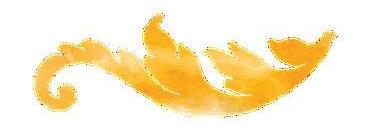
 Margot Albrecht’s Column
Margot Albrecht’s Column
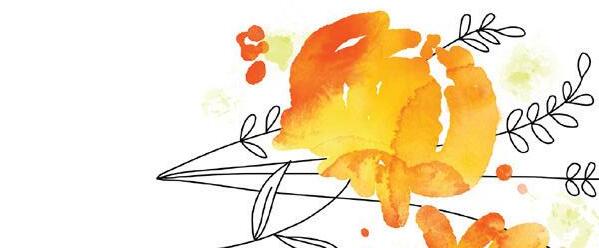



The 90s, for Gen-Xers like me, was the Golden Era of music and fashion … Seattle Grunge and Nirvana’s poster-boy-for-disaffected-youth Kurt Cobain, with his Christian Roth sunnies and infamous MTV Unplugged thrift shop mohair cardigan (which, btw, in 2019 fetched nearly $500,000 at auction); plaid shirts and space buns; Britpop and Pop Punk; Nu Metal and Trance; the East Coast/West Coast Biggie/Tupac feud; slip dresses and Doc Martens. In Adelaide, all these influences interfused in an alternative melting pot that was The Big Day Out, Thebarton Theatre (The Thebby), Crown and Anchor (The Cranker), The Tivoli, LeRox, and the iconic Mars Bar.

I was a prolific op-shopper. Anything went. I paired para-boots with 70s Levis, Docs with disco dresses, lace-up long boots with 50s knitted suit sets. Back then, to open the doors of my musty second-hand wardrobe was to be engulfed in a mushroom cloud of moldering vintage, stale tobacco and the sickly-sweet scent of smoke machines.
Among the coolest retro clothing stores was The Little House of Treasures, located down a flight of stairs in a Rundle Street basement (I’m happy to report this basement is still peddling retro and repurposed wares under the moniker Fox on the Run Vintage). It was in this space, many moons ago, that I first set eyes on The Little Yellow Dress ... a 60s mod mini dress, shot through with gold glitter thread. It was love at first sight.
Somewhere in this timeline, I was on a quintessential girls-night-out with my housemate/ bestie. I was glammed up in my Little Yellow Dress, zip-up knee high boots, replete with glitter-smattered eyelids and ubiquitous patent mini backpack. Arms linked, my friend and I were on a city crossing, giggling and chatting about everything and nothing, when suddenly a young woman, crossing in the opposite direction, broke away from her own girlsnight huddle and spat on me.
Wait! What?
She SPAT on me.
Then she was yelling in my face … freakweirdo-slag. My friend and I were too shocked to react. Later, that same night, we were passing a pub, when someone inside slammed against the window like a dog flinging themselves at a fence. Face pressed to the pane, hurling abuse at me, was the same crossing woman who’d spat on me.
Jesse FrohamThis time my bestie and I laughed at the absurdity of it. What on earth must have happened in that individual’s life to provoke such a viciously vitriolic reaction to me?
But it wouldn’t be the last time my appearance aroused a hate-fuelled response. My then boyfriend and I were visiting my bestie on her Uni break in her middling sized country hometown. When we walked into her local pub, it was like a scene in an old Western; a hush fell and we were surrounded by a group of punters who’d taken an instant dislike to the strangers in their midst. They seemed especially triggered by my boyfriend’s waistcoat, which, according to them, meant he was ‘gay’ and at my Little Yellow Dress, which meant I was a ‘cross-dressing freak’. This township’s lore deemed that we deserved to have the proverbial shit kicked out of us. Suddenly, a huge bikie dude (whose fashion choices arguably denoted their own negative connotations) came to our rescue. He told us to stick with him and he would protect us. We clung to that bikie dude, like a pair of remora fish, for the remainder of the night.
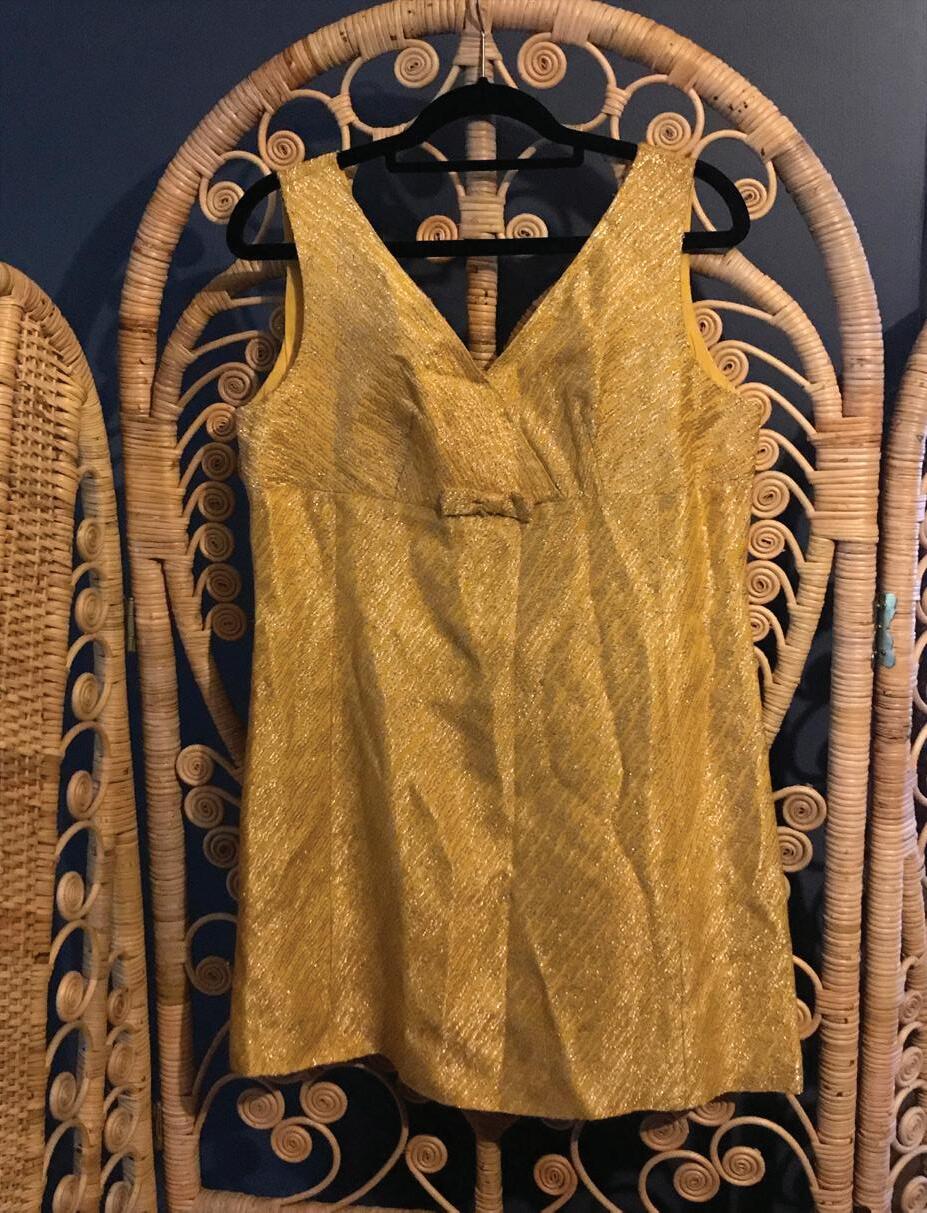
This happened to me nearly three decades ago and yet, only last weekend my sixteen-yearold son was walking in the city with a couple of his queer friends when some teens rode past on their bikes and yelled ‘Emo C*nts’ at them. My son and his friends laughed it off. While I’m proud of their resilience—of the way they own it and wear it like a badge of honour—it also angers me that they regularly have strangers hurling abuse at them because of their alternative appearance.


We humans, it seems, just can’t unscramble our hardwired predisposition to stereotype based on the way someone looks.

Recently, as I was doomscrolling through social media, I was struck by the following ‘inspirational’ quote: Some people will never like you because your spirit irritates their demons.
I would love if you wanted to share your own Wait! What? moments where your spirit has irritated the demons of others.
empiretimes@flinders.edu.au
 The Little Yellow Dress (like me, a tad wrinkled and worse for wear but still hanging in there)
The Little Yellow Dress (like me, a tad wrinkled and worse for wear but still hanging in there)
Her darkness tasted of fresh air and drowning. A curious recipe for misery. She laid there intertwined between moments of intoxicating happiness and overwhelming hopelessness. She dreamed of places so beautiful you would wish for them to last forever. She lived in places so dark that you would never wish them upon another soul.
By Evangelia Karageorgos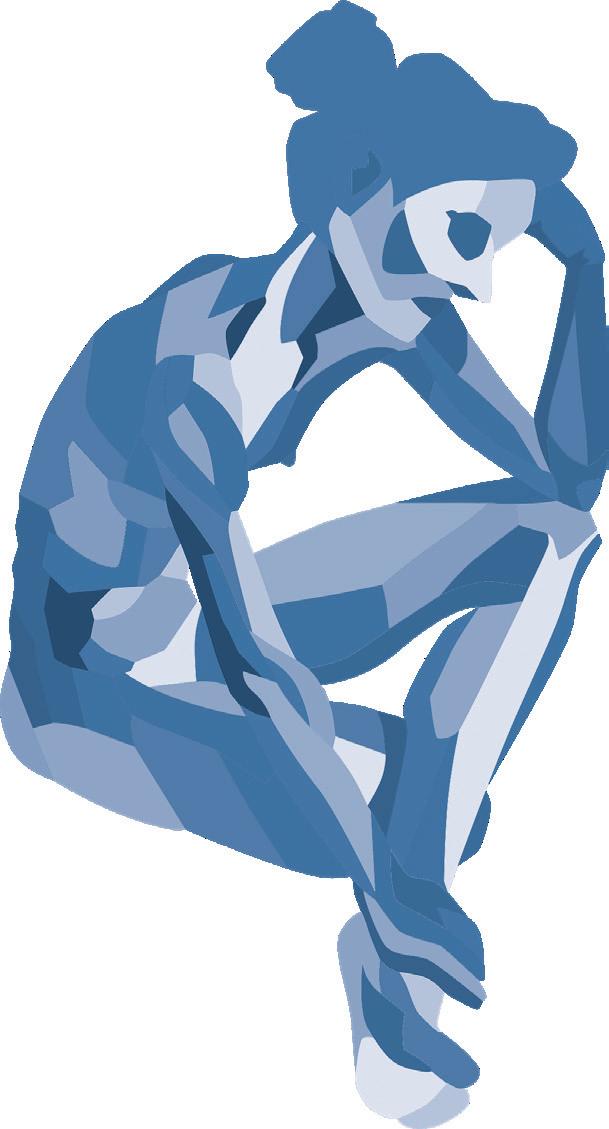
 By Evangelia Karageorgos
By Evangelia Karageorgos
His guitar cries out in sorrow tonight for he is hurting once again. She helps endure the pain he feels. Each cord and note, tears that have been shed.
He turns to her; his oldest friend the friend he holds most dear. Together they have lived through every heart break, betrayal and lost tear.
They are like one; the sum of two holes. Confiding his emotions into her. Strumming her strings to hear her cry, Dark soon pours out of her.
Words flow out of him, turning his tears into a song. Releasing the pain he holds inside. Crying out a death march to love lost freeing his soul and mind.
His guitar cries out in pain with him she hurts when they play this song. Together they share this story of heartache and a love now gone.


UNKHISEITODOASQVVVES
SBTWNINNIEMLTAYXUTTT
JUXTDOTGVSEOIDMJEGYR
BHSAFNAAIGJGNNLIPNNE
RBEZUHLUTPMYGEVKKTFS
QRCALRITYYJKDSTNHESS
OABJLRTIXZXUISNKOEID
VIQTNTYSELFESTEEMMYD
NNGSEIHMHPTCOCFMZOMK
FWTPSPTYIHTRRLRJJTOH
CATFSFQIPPYYDJCSYIFA
BRPRESSUREZOEYGHHOMP
YPGSMMJNWFEFRKOEBNDP
ETDXTXTVLAROEXOQASTY
EatingDisorderMindfullnessPositivityOCD
EsteemPsychologyMentalityBPD
PressureEmotionsSadness
DepressionAnxietyAutism
StressGriefHealthy

Are you ready for Issue 5?!
Deadlines have closed, and the magazine is currently in its editing and designing phase. Make sure to keep a lookout on our social media for the theme, and when physical copies will be available!
Want to know what Issue 5’s theme is? Have a look at the picture on this page for a clue, or follow us @empire.times on Instagram, and @empire times on facebook where we’ll be announcing the themes for every iisue!
Flynn the Mallard Duck is going to be a regular occurrence throughout all of our issues this year! So, make sure to keep an eye out for him as you read the magazine for your chance to win a prize!
If you want to contribute to the magazine, please don’t hesitate to contact us with any ideas or submissions you have. Whether it be for a story, poem, photo-spread, cartoon, or article, we’d love to hear from you.

Mark your calendars! Issue 6 deadlines close on JUNE 30th! The theme is DISABILITY. Feel free to take the theme as literally or as figuratively as you’d like!
Contact us at empiretimes@flinders.edu.au, through our website at empiretimesmagazine.com, or @empire.times on Instagram, and @ empire times on facebook.
Many students face issues or difficulties during their studies. Our academic advocates are here to help explain policies and procedures, to make sure you understand your options and rights.
We can support and advise you on issues like:
• reviews of grades for assignments and topics
• re-marks of assignments
• academic integrity
• student progress
• remission of fees
• placement problems
• lodging formal complaints
Our financial counselling service is here for all things money-related and can help you find ways to improve your financial situation.
If you’re in financial difficulty we have emergency financial assistance, interest-free $500 loans, and can help in working out how to make a budget. Our financial counsellor can also negotiate with creditors on your behalf and help with uninsured car accidents, disconnection of utilities, and unpaid fines.
We are available for appointments via telephone, Microsoft Teams and face-to-face appointments. Our services are free and confidential to all students.
